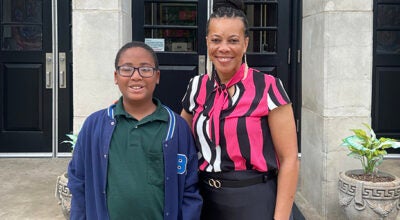Currie, Doty on different sides at annual legislature breakfast
Published 9:32 pm Monday, March 26, 2018
They agree to disagree.
Brookhaven’s two leading Republican lawmakers — District 92 Rep. Becky Currie and District 39 Sen. Sally Doty — laid out contrasting viewpoints and explained opposing votes Monday morning at the Brookhaven-Lincoln County Chamber of Commerce’s annual legislative breakfast. Though they are known for working together on local and Republican objectives, the “Ladies from Lincoln” have split on some of the Legislature’s bigger, statewide issues, specifically funding for infrastructure and Medicaid.
“No bill would be better than a bad bill,” Currie said of the BRIDGE Act, a pet project of Lt. Gov. Tate Reeves that had momentum before the House killed a version full of Senate adjustments Saturday.
The BRIDGE Act — Senate Bill 3046 — promised $1 billion in road and bridge funding to cities and counties statewide through a combination of shifted tax revenues and the creation of new funds. Lawmakers began seriously considering infrastructure funding this year after complaints about missing bridge funding from county leaders and a statewide bridge inspection demanded by the U.S. Department of Transportation that found numerous failures.
Currie said the House leadership stomped out the BRIDGE Act after Senate amendments called for cities and counties to match state funding dollar-for-dollar.
“Who’s to say we’re going to have new money?” Currie said. “I have small towns like Wesson in my district — I can tell you Wesson won’t have any.”
Doty, a close ally of Reeves, disagreed, saying the Senate’s version of the bill was more encompassing in the long run.
“I like the idea a local community is going to have some skin in the game,” she countered. “The senate bill took some money from MDOT, and I thought that was a good switch as well. We like our friends at MDOT, but sometimes they don’t do things as efficiently.”
Senate Bill 2968 would add $30 million to the Local System Bridge Replacement and Rehabilitation Program — one of county supervisors’ main bridge funding sources — which was unfunded last year. The bill is still alive.
Currie and Doty also had differing views on Medicaid funding.
Sunday afternoon, Currie took the podium in the House and led an effort to send the Medicaid appropriations bill back down to conference, a risky maneuver with so little time remaining in the session. If the conference fails to agree, Medicaid could go unfunded, requiring a special session later in the year.
Currie, a registered nurse, said she booted the bill because it lacked a technical amendment. The appropriations bill would hand Medicaid a $6 billion budget, while a technical bill would lay the ground rules for reimbursement procedures between hospitals and insurers.
A technical amendment keeps the Legislature in control of Medicaid. Without it, control of the agency goes to the governor by law.
“The technical bill would protect our hospitals. We cannot appropriate money for Medicaid and then not be able to run it,” Currie said. “I like this governor, but who knows who will be next?
Doty disagreed.
“Should the Legislature be making these decisions about payment? I don’t think so,” she said. “We are a part-time Legislature that meets for 90 days. That’s not the way most other states run their Medicaid.”
The Medicaid technical amendment is also a hot political issue involving Mississippi True, a managed care provider formed by dozens of local hospitals. The group missed out on any piece of a $2 billion managed care contract Medicaid awarded last year and could get back in the game through the Legislature’s mandate.
As of press time Monday, lawmakers were still debating Medicaid funding, facing a midnight deadline.
Currie also spoke to the death of the Mississippi Uniform Per Student Funding Formula Act of 2018, a major Republican bill that would have replaced the 20-year-old Mississippi Adequate Education Program as the primary vehicle for school funding. The act died on a technicality n March 1 when the Senate voted to recommit House Bill 957 past the committee deadline.
Currie said she believes the legislation died because of “fake news” about its potential effect on school funding spread through Facebook.
“I think this was an opportunity we had to plan ahead,” Currie said. “(Schools) liked it, we liked it, and I truly believe because of the misinformation out there, we lost out on a good bill.”
Doty was one of four senators who abstained from voting on the bill.
Also present at Monday’s legislative breakfast was District 53 Rep. Vince Mangold, R-Brookhaven, who remained silent through most of the question and answer session while Currie and Doty handled the meat of the affair.
Mangold’s biggest contribution to the discussion came on his introduction, when he explained the passing of his first piece of legislation — House Bill 1359, which would exclude disaster payments made to farmers in emergencies such as drought or floods from being taxed.
HB 1359 was signed into law by Gov. Phil Bryant Monday.
“We hope we never have to use it, because if we do that means something bad has happened,” said Mangold, a cattleman.





